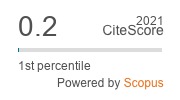Efficacy of MCIMT with Auditory Cueing in Order to Augment Functional Motor Recovery of Chronic Hemiparetic Arm
DOI:
https://doi.org/10.17762/msea.v71i4.2545Abstract
Background
Acc. To WHO Stroke is the leading cause of functional impairments, with 1/5 of sufferers requiring institutional care after 3 months and 15% - 30% becomes permanently disabled. It is a life-changing event that affects person along with family and caregivers. The concept of learned nonuse has been used to explain the motor deficits that often occur following stroke Learned nonuse develops as a result of an upper motor neuron lesion that suppress the central nervous system and motor activity.(1)
- Constraint induced movement therapy is a Neuro rehabilitation approach that has been previously found effective in improving functionality of Chronic hemiparetic stroke patient. CIMT is based on the principle of behavioural training . Components of CIMT are-
- Repetitive task specific training (shaping & task practice)
- Adherence improving behavioral techniques (i.e. transfer package)
- Constraining use of more affected extremity (UE)
It improves cortical reorganization & neural plasticity of the affected hemisphere. It mainly covers –TBI, SCI, CVA, CP.(2)
This study was being performed with the objective To evaluate the efficacy of 8 week M-CIMT programme with auditory cueing to enhance timed & strength (coordinated) performance in hemiparetic upper limb.
Methodology
This study include purposively selecting 60 stroke survivor within age group of 20 yrs or above who fulfill the inclusion & exclusion criteria. Data was collected for each participant after obtaining the written consent from each subject. Subjects were tested using Wolf Motor Function Test (WMFT), & Motor Activity Log (MAL) which test the functional activity of the affected arm in real world pre test , 3rd week, 6th week, post test. The subjects participated in 8 week Modified CIMT Programme 5 day/week. Each session consist of –
- Warm up- 5-10 min
- MCIMT Protocol – 45 min
- Cool down- 5 min
Results
After participation in MCIMT Programme, subjects demonstrated a significant improvement in WMFT & MAL score (mean ± SD) pre test score 46.6000 sec, 1.1765 & post test score 16.8500 sec, 3.14 with significant (t value- 14.292, -51.356) & (p value- 0.0) A strong correlation was found between both data sets. Analysis from the result found that MCIMT was effective to produce significant difference in affected extremity function in chronic stroke patients.
Conclusion
This study has indicated that Modified CIMT protocol using a more distributed practice schedule but still emphasizing repeated use is effective in reducing upper-limb impairment and improving upper-limb use and function. The major finding was improvement in Post test score thereby it can be concluded that MCIMT is a promising approach in improving upper extremity rehabilitation after chronic stroke.




